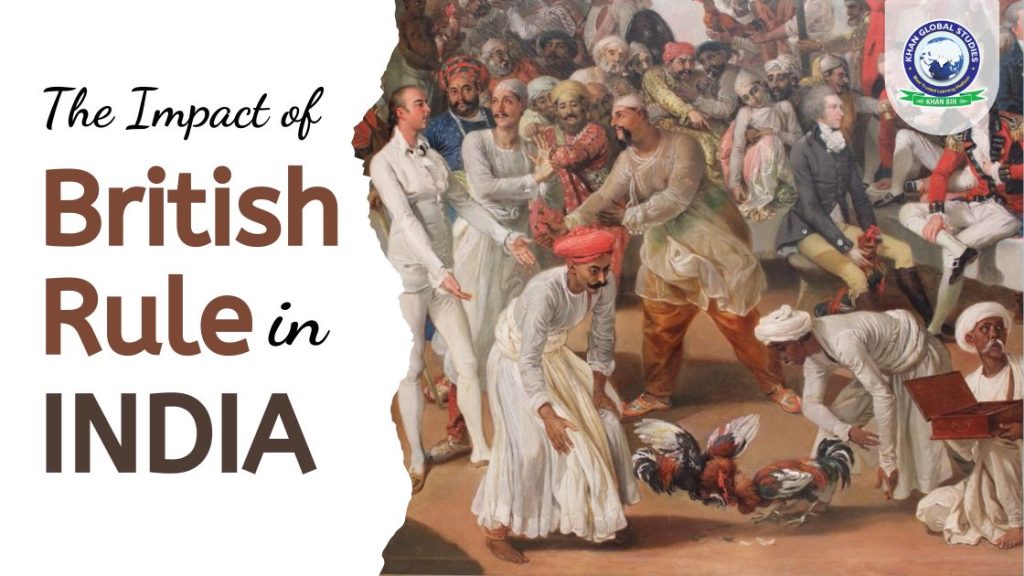Throughout history, relations between India and Britain have been complex and multifaceted, shaped by the British Government’s policies during its colonial rule over the Indian subcontinent. A survey of these policies provides insight into their impact on the socio-economic, political and cultural landscape of India. So let’s know the impact of British rule in India.
British East India Company
The British East India Company, established in the early 17th Century, laid the foundation of British rule in India. Initially a trading enterprise, the Company gradually expanded its influence, assuming administrative control over large parts of the country. This started British colonialism in India.
Doctrine of Lapse
Introduced by Lord Dalhousie, the doctrine of lapse was a controversial policy that allowed the British to take over Indian states whose rulers died without leaving any male heir. This policy led to the annexation of many princely states, leading to anger and opposition among Indian rulers and nationalists.
Land Revenue System
One of the most important British rule in India was the implementation of the land revenue system. Under this system, land was classified as ‘settled’ or ‘unsettled’, and farmers had to pay a certain percentage of their agricultural produce as revenue to the British government. This system often led to the exploitation and impoverishment of Indian farmers.
Education Policies
The British also introduced various education policies aimed at promoting Western education in India. The establishment of English medium schools and universities was important in spreading Western ideas and knowledge among the Indian elite. However, these policies also led to the neglect of traditional Indian education systems.
Partition of Bengal
In 1905, the British government announced the partition of Bengal, dividing the province into two separate units. Partition faced widespread opposition and agitation from Indian nationalists, who saw it as a deliberate attempt to divide and rule the Indian population along religious lines.
Indian Civil Services
The British established the Indian Civil Service (ICS) to manage the administrative affairs of colonial India. However, British officers largely dominated the ICS, leading to a sense of alienation and resentment among the Indian population. This inequality in representation gave rise to the demand for the participation of Indians in governance.
Policy of Divide and Rule
Perhaps the most lethal of the British policies was the ‘Divide and Rule’ strategy adopted to maintain control over India. Taking advantage of existing religious, linguistic and cultural differences, the British sowed the seeds of discord and distrust between different communities, thereby weakening the unity of the Indian population.
The Legacy of British Rule
The legacy of British policies in India remains a subject of debate. While some acknowledge the development of infrastructure, a unified administration, and a modern legal system, others emphasize the exploitation of resources, deindustrialization, and widespread poverty. The introduction of English education had a lasting impact, but it also contributed to a sense of cultural alienation.
Conclusion
The survey of British rule in India highlights the complex legacy of British colonial rule. While some policies laid the foundation for modernization and development, others perpetuated exploitation, inequality and division. Understanding these policies is essential to understanding India’s journey towards independence and its lasting impact on the nation’s path.




